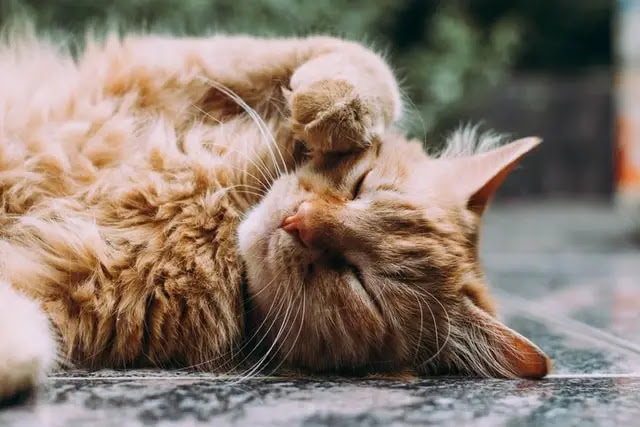What are cat diseases?
Diseases transmitted from toxoplasmosis
Toxoplasmosis is a parasitic disease transmitted to cats when eating
rodents or insects, or contact with infected cats, as it is transmitted to
humans by contact with infected cats or touching their feces without washing
hands, eating fruits and vegetables contaminated with the pathogen, or eating
raw meat, as it appears dangerous that it may cause the abortion of pregnant
women, the birth of a dead child, or serious health problems for the infected
fetus, and states that infected people who have a strong immune system do not
need treatment, the disease alone disappears, in addition to providing
Medications to treat vulnerable people.
Rabies
Rabies Dogs are more common than cats that may become bitten by an infected
animal, so humans may be transmitted to the disease through cat bites, a
disease that is fatal to both humans and animals, and in general the treatment
of the disease is mainly to prevent it by vaccinating people who deal with
animals continuously every two years, with the need to go to emergencies when
exposed to the bite of any animal, to avoid the disease and treat it before
symptoms appear.
Campylobacter
Campylobacter is an intestinal infection that affects humans when handling cat feces directly without wearing gloves, neglecting to wash hands, eating undercooked meat and poultry, or drinking contaminated water, in addition to drinking unpasteurized milk, and the treatment for this infection lies by taking the antibiotics he describes Doctor for severe cases, and some other cases may not need this, as it is a non-fatal infection in general.
Health problems that affect cats
Vomiting
It is a common
problem in cats when eating poisoned or inedible food, or when suffering from
urinary tract diseases, diabetes, and hairball, and it is one of the problems
that requires a quick solution; To avoid dehydration in the cat, a sample of
the cat's vomit is taken and examined by the veterinarian.
Fleas
Flea infection is common in outdoor cats, and it is a problem that may cause anemia in cats if it continues for a period without treatment, as the treatment of these cases includes oral medications, foams, powders, and topical treatments.
Diarrhea
Cats get diarrhea as
a result of several reasons, including contaminated food, intestinal
parasites, allergies, etc., and the period of infection may range from days to
weeks and months, and the cat must be taken to the veterinarian when the diarrhea
continues for more than a day, as for immediate remedial measures are By
providing him with clean water on a continuous basis to avoid dehydration, as
well as not feeding him for a period of no more than 12-24 hours.
Blindness
The cat may go blind for a long time without the owner noticing it, and
there are many reasons in it, such as blue water, aging, tumors, kidney
disorders, thyroid, high blood pressure, and is treated through medical
examinations, keeping the cat at home, and not putting furniture at home so as
not to bump into it.
Influenza
His treatment is to clean the eyes, place a point in a room with air and
sun inside, as well as clean the cat's scalp daily, and provide warm foods for
her, such as sardines.
Constipation
It is considered a disease that affects older cats and is treated by
combing the cat's scalp to prevent insects, putting laxatives in the cat's food
twice a week, working to lose weight in case she is fat, and motivating her to
engage in vital activities.
Dental problems
Resulting from age, gum infections, and to treat this type of disease you
should allocate a toothbrush for the cat for daily cleaning, note the gums on a
weekly basis, and continue to give the cat dry food.
Epilepsy
Symptoms include falling to the ground, moving legs, urinating on the ground, and having two causes, namely brain tumors, kidney and liver diseases, and being treated by trying to keep the cat away from loud sounds, not exposing it to high lights, keeping furniture away from it, in addition to keeping the hand out of the cat's mouth, where it can bite, and accompanying the cat until it wakes up from the seizure, so that it does not suffer harm, and in this disease prefers the use of a veterinarian.
Cat care tips
Cats should be cared for during their upbringing to maintain their health
and those around them, by taking into account the following:
- Bathing: In general, cats do not need to bathe, but when needed, it is recommended first to distill the eyes of cats with mineral oils to avoid irritation, make sure that the water temperature is approximately 37°C, then start bathing them from the area of the head, ears, and neck down to the rest of the body, and finally be careful to keep the cat for a few hours inside the house to avoid injuryColds.
- Nutrition: When feeding cats, wet food should not be left out for more than two hours, returned to the fridge if not eaten, and if you want to change its preferred diet, it should be done gradually to avoid shock to her digestive system, and dog food should never be served to cats.

